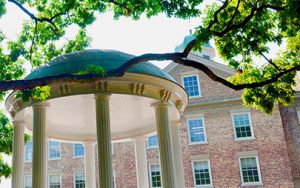Friday, 04/30/2021, 12:00 pm. ARCHIVED EVENT
Location: online
The Carolina Center for Population Aging and Health (CCPAH) presents The J. Richard Udry Distinguished Lecture.
Teresa Seeman, PhD, will present “Aging Trajectories Through Biopsychosocial Lens.” Seeman is Professor of Epidemiology at the Fielding School of Public Health and of Medicine in the Geffen School of Medicine at UCLA. Trained as an epidemiologist, with post-doctoral training in neuroendocrinology, her research interests are inter-disciplinary, focusing on role of social and psychological factors in health and aging, with particular interest in elucidating the biological pathways through which such factors impact on health.
Working in both community- and laboratory-based contexts, her work has documented the widespread health effects of protective social factors (e.g., social relationships) and psychological characteristics (e.g., control beliefs, perceptions of self-efficacy), including effects on risks for physical and cognitive decline as well as overall longevity. Her research has also contributed to our understanding of how these social and psychological influences are mediated through multiple major biological regulatory systems. She has been a leader in empirical research on a multi-systems view of biological risk – allostatic load.
Her work has shown that levels of allostatic load predict subsequent health outcomes, and that differences in allostatic load are related to social factors, including levels of social integration and support as well as more traditional measures of socio-economic status [SES]: higher allostatic load seen among those reporting less social integration and/or support and lower SES. Her current research is focused on developing more integrated models that incorporate consideration of life-course experiences with stressful and protective conditions and the cumulative impacts of these experiences on major biological regulatory systems that determine trajectories of health and longevity.
Abstract: The presentation will examine evidence linking socio-economic and socio-emotional life-histories to trajectories of aging with explicit attention to the multiple biological pathways involved in these relationships. Taking a life-course perspective, illustrative examples of the patterning of these relationships across the life-course will be reviewed. Evidence of later-life plasticity of psychosocial and biological influences will be highlighted, illustrating the potential for health promotion via psychosocial interventions even at later ages.
This event will be held on Zoom. You can register here.

